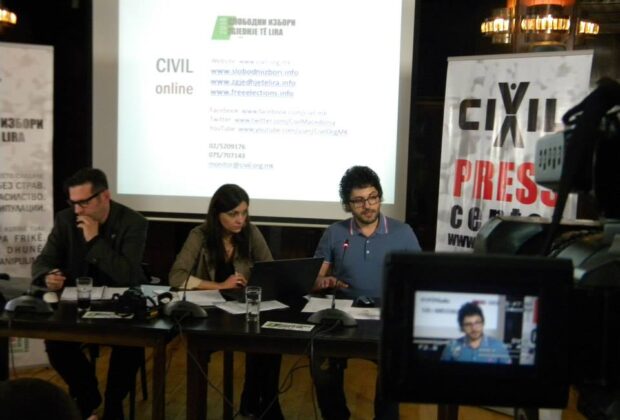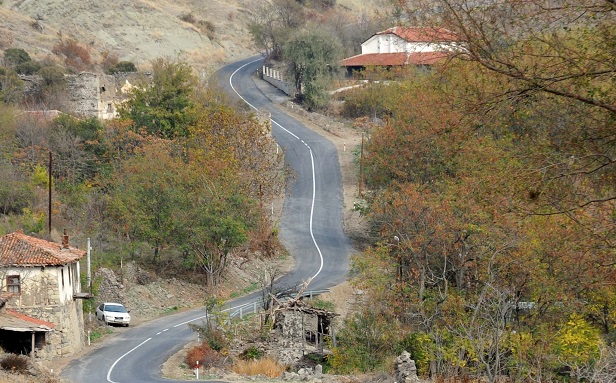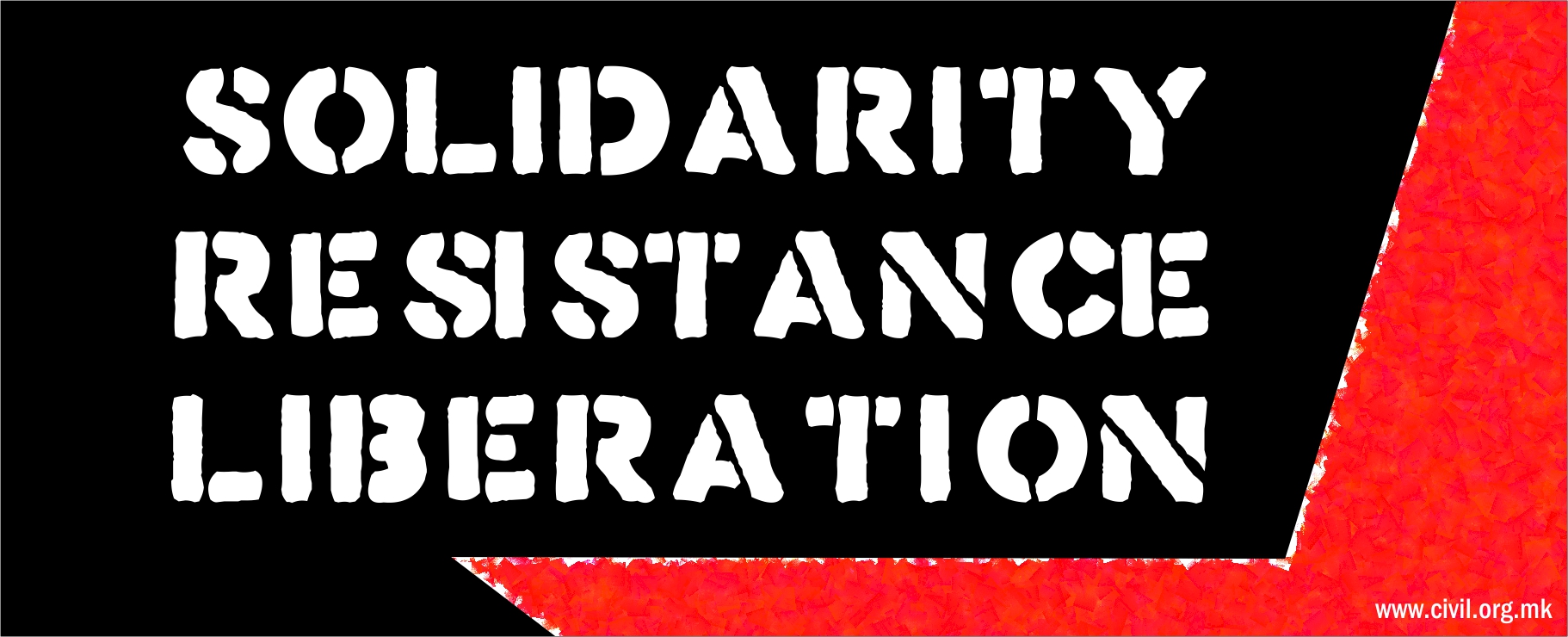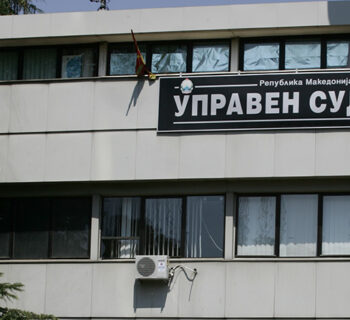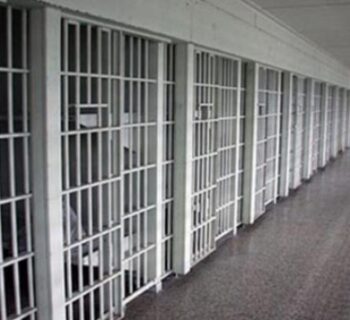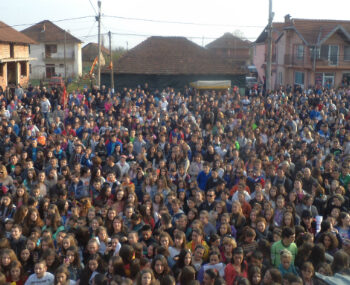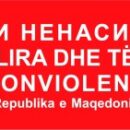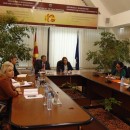The electoral process in the Republic of Macedonia is characterized by great number of irregularities and utmost misuse of public resources, accompanied by serious flaws in the electoral register and structural violence at several levels, which disrupts the democratic process and the operation of the institutions as a whole.
The electoral campaign was harsh and unprincipled, whilst the calls for public debates between participants of the electoral run were neglected for a long time by the ruling political party. The campaigns were launched before the timing as determined by the Law, and are ran aggressively and to a great extent, without stopping at anything on the way to discredit political rivals. Particularly harsh and discrediting language was used by the ruling VMRO-DPMNE.
The presidential elections were, inter alia, marked by the DUI’s call addressed to the ethnic Albanians, to boycott the presidential elections.
Once again, ethnic topics were dominant in the harsh performances of the party leaders of the government coalition partners.
The manipulations and the hate speech were clearly expressed and present in the pro-government media and social networks, where the hate speech, the vulgarity and the harsh speech are typical for media uttered apologists of the policies of the ruling political party.
The pressure of the ruling party put on CIVIL through the pro-government media and through their official press releases was prevailing, fully unprincipled and in threatening tone. The impediment and pressure are noted put on CIVIL observers during the elections days in both, the first and the second round.
THE REPORT MAY BE DOWNLOADED IN PDF FORMAT HERE.
Electoral register
Issues with the electoral register were noted in all the municipalities of the Republic of Macedonia, in both elections rounds. Such systematic anomaly casted a serious shadow on the entire electoral process.
The problems were manifested in several manners. For instance, great is the number of cases when voters were able to cast their vote for the parliamentary elections, but could not be found in the electoral register for the presidential elections, and vice versa.
Great number of reports speaks of voters who were not in the electoral register at all. Part of them report to have found their names in the online version of the electoral register, but were not there when they would go out to vote in the polling place.
Many cases were noted of voters who casted their votes for the parliamentary elections in a municipality, and were guided to vote for the presidential elections into another municipality.
Phantom voters and deceased persons were disclosed and noted by CIVIL observers in the municipalities of Kisela Voda, Centar, Aerodrom, Resen and Ohrid.
Misuse of public resources
The line between the institutions and the ruling party was completely erased. CIVIL notes down unseen abuse of institutions, administration and all available resources during this period, carried out by the ruling parties, primarily by VMRO-DPMNE, everywhere in the country.
Lists with secure voters, mandatory attendance at conventions and other events, aggressive party agitation and activism, recording voters on the Election Day – are only part of the regular party duties of the public administration staff at all levels.
During the entire electoral process, including the elections days, the pre-election silence was violated without hiding everywhere in the country.
Neither did DUI, as government coalition partner, refrained from such misuse in the municipalities inhabited by ethnic Albanians. Misuse of public resources was also noted by the newly-established party GROM in the municipality of Karposh, as well as by SDSM in the municipality of Kumanovo.
Bribery of voters
Almost in the whole country bribery was offered to voters. Our observes report on offering MKD 500 for the presidential and MKD 500 for the parliamentary elections, done by members of VMRO-DPMNE. Such cases were noted in Strumica, Sveti Nikole, Kochani, Kichevo, etc. Organised transport to the polling places was noted for those voters.
Cases were registered when cash was not handed in person, but material assets were provided in that value, as well as vouchers to be used in stores. In Sveti Nikole, the bribed voters were able to buy goods in the amount of MKD 2,000 in the local store.
During the campaign, employments and promises for employment were noted. CIVIL observers investigated the case of employments in the steel-production plant JUGOHROM close before the elections. Employees in this plant claimed to be greatly pressured to vote for the ruling party.
Transportation of voters and collection of identity cards
Party activists of VMRO-DPMNE, SDSM, DUI and DPA were noted transporting voters by various transportation means, including a tractor. The vehicles in Shuto Orizari were carrying party symbols of VMRO-DPMNE.
Cases were noted when voters were facing various types of compulsion. Identity cards of voters were collected by policemen or by party activists of VMRO-DPMNE, aiming at ensuring voting in the municipalities of Shuto Orizari, Kisela Voda, Bitola and Strumica.
Transportation of voters was noted in the municipalities of Kichevo, Resen, Staro Nagorichane, Radovish, Veles, Demir Kapija, Gevgelija, Sveti Nikole, Kochani, Aerodrom and Gazi Baba.
In Aerodrom and Gazi Baba lines of 20 vehicles each were noted, full of voters.
Pustec
In the polling place number: 2849 in Centar, a voter from Pustec was noted, who came to vote, with voting ink already applied on both of his thumbs. The Election Board reacted, and thus, the voter ran away.
Suspicions are put on part of the voters from Pustec, who voted in two polling places – in Tirana on 26 April, and in Skopje on 27 April, taking into account that they possess identity documents from both, Macedonia and Albania. These persons had voting ink applied on both thumbs.
Organised transportation of voters from Pustec was registered, of which CIVIL has photo documentation. Voters from Pustec were registered in Resen, Butel, Centar, Kisela Voda, Kichevo and Aerodrom.
Unlawful behaviour of Electoral Board members
Loud call the roll while identifying voters, which is prohibited by the Law, turned to be almost usual practice. On the Election Day when the sick and vulnerable persons were to vote, the Election Board members in Studenichani brought ballots to these persons for the parliamentary elections only. When asked for the presidential elections ballot, the Election Board members would respond that those elections are not important at all.
In the village Opae, Kumanovo, a voter was warned by a member of the Election Board that he will regret for voting for a presidential candidate, although he was persuaded not to do so.
In the village of Nerashte, the ink was not applied at all.
In the polling place number 2146 in Veles, persuaded by the President, all Election Board members had to sign the Minutes before the counting of votes started.
Public voting
Public voting was noted in Bitola, polling place number: 0120/1, municipality of Gjorche Petrov, polling places number: 2570 and 2568, Studenichani, polling place number: 2341 and Kichevo, polling place number: 0279 (v. Lisichani).
In the village of Creshevo, municipality of Gazi Baba, lists and ballots were carried out of the polling place and taken into a vehicle, which was waiting in front of the polling place. Then, the vehicle driver encircled the favourite numbers in the ballots, which were afterwards taken back to the polling place.
Another action registered in Studenichani was that the voting screens were turned against the walls, so that everybody could see who voted for whom.
Family and group voting
Family and group voting, as well as abuse of assistance during the voting were noted in 37 polling places, such as: Arachinovo, Bitola, Veles, Gevgelija, Gradsko, Demir Kapija, Demir Hisar, Karposh, Kisela Voda, Kichevo, Kochani, Kumanovo, Prilep, Probishtip, Rankovce, Resen, Sveti Nikole, Staro Nagorichane, Studenichani, Chair, Shtip and Shuto Orizari.
A voter in Studenichani, at the polling place number: 2346 showed 7 identity cards. He was given 7 ballots and thus, he was left to vote in peace.
In Radovish, one single person voted for at least 30 citizens, who reported to be illiterate. The Election Board allowed this action.
Violence
Violence was present rather as a latent threat throughout the entire electoral process, but on several occasions, it was registered as most direct one. Such are the cases of the attack of the government coalition partner, Amdi Bajram, against the Vice-President of the opposition SDSM, Radmila Shekerinska, during the first elections round on 13 April, inside the primary School Brakja Ramiz Hamid, as well as the physical attack of VMRO-DPMNE activists against activists escorting the presidential candidate Stevo Pendarovski, during the electoral campaign in between the two rounds, on 16 April, on the Street Gjorgji Kapchev, neighbourhood of Lisiche, municipality of Aerodrom.
During the electoral process and on the elections days, clashes were noted between party activists in Plasnica, Strumica, Kumanovo, Ljubanci, Brnjarci, Radishani and Gazi Baba.
Particularly symptomatic incident was the fight in Radishani on 13 April. It was about VMRO-DPMNE activists, who pressed physical attack against an Albanian family, in an apparent case of hate violence. The police did not intervene timely on this incident.
Arrest and detention in a police station
The mayor of Kumanovo, Zoran Damjanovski and several SDSM activists were arrested, more precisely, invited for an informative talk in a police station, under the justification that they broke the election silence.
The parliamentary candidate of the National Movement of Macedonia, Sashe Ivanovski, was arrested in Sveti Nikole on 12 April, for breaking the election silence.
Prisoner vote
In both, the first and the second elections round, a prisoner in the Prilep prison was not listed in the electoral register and thus, could not enjoy his right to vote. “Even though the competent took the responsibility to correct their mistake, they failed to do so. Their excuse was that they did everything in their power. Last year I voted in the investigation prison, and this year, as my wife tells me, I was listed in the electoral register under my home address”, says our source in the prison.
CIVIL concludes inconsistencies during the voting in Shtip prison, where, our information tell, the prisoners were persuaded to vote for a specific political party and a specific candidate.
Prisoners were offered a bribe to vote for VMRO-DPMNE, and in return, they would receive soap, two wafers and two razors.
Irregularities during the voting of prisoners were noted also in the prisons of Shuto Orizari and Prilep.
Violations of the election silence
Violations of the election silence were noted everywhere in the country. Most conspicuous and open agitations were conducted by VMRO-DPMNE party activists, by means of distributing promotional items, door-to-door agitations, agitations in front of the polling places, on social networks, as well as bribery of voters on the elections days, on 13 and 27 April respectively.
Illustrative is the case of the mayor of the municipality of Aerodrom, Ivica Konevski, who, during the election silence, was noted sending letters to voters, signed by him and expressing support for the presidential candidate Gjorgje Ivanov. In addition to violating the election silence, this also implies abuse of public resources, more precisely, the mayor position.
Violation of the election silence was noted to be carried out by SDSM, DUI, DPA, GROM and National Movement of Macedonia.
Increased police presence
The great presence of the police, in some places with special police forces and with armoured cars, in front of the polling places or even inside the polling places leads to tensions, lack of democratic climate and it disturbs the voters. Particularly problematic was the presence of armed policemen inside the polling places. This situation creates tension on the Election Day itself, and particularly the one of 27 April.
Increased police presence was registered in Strumica, Tetovo, Bitola, Butel, Chair, Centar, Aerodrom and Arachinovo. Presence of armed policemen inside the polling place was noted in Shtip, Demir Kapija, Karposh, Aerodrom, Chair and Bitola.
Children and youngsters in the campaign
Children and youngsters were misused during the entire electoral campaign. They were massively sent to various towns to attend party public meetings and conventions, during the hours envisaged for school attendance.
The children and youngsters were appearing in the social networks wearing party symbols. During the party field activities, children and youngsters were carrying flags. This was particularly visible during the party performances of VMRO-DPMNE and DPA, whilst minors wearing t-shirts and other party symbols could be seen during the events of VMRO-DPMNE, SDSM, DPA and DUI.
For the first time CIVIL observers noticed another serious irregularity related to abuse of minor children. At the polling place number: 0337 in Gevgelija, minors were seen voting.
Voting ink issues
Same as in the previous presidential elections round, during the second elections round, that is, during the early parliamentary elections, CIVIL observers reported on issues with the voting ink, which could be removed right after it was applied.
This was noted in the municipalities all over Macedonia.
Obstructions of CIVIL observers
Obstructions of CIVIL observers were noted in total of 21 cases on 13 and 27 April.
The obstructions implied hampering presence at the polling place, asking for identity cards, pressures, insults, and in two cases – attempts for physical attack in the municipalities of Shuto Orizari and Strumica.
In the case of Strumica, although it was sought, police assistance was never provided. SEC did not even respond to CIVIL’s complaint on the obstructions made against CIVIL observers.
CIVIL and SEC
The State Election Commission (SEC) shall not consider the irregularities and annotations submitted by the non-governmental organisation CIVIL in relation to the elections.
We consider your annotations as information and cannot make decisions upon them. This is what SEC Chairman, Nikola Rilkovski stated today during a Press Conference.
“We received many annotations from the non-governmental organisation CIVIL, but to us this is a matter of submission of informative materials. Those are not data upon which we make substantial decisions. We decide only upon information that we receive as official data from the objections”, Rilkovski said.
SEC Vice-Chairman, Subhi Jakupi, said to CIVIL that we are not active during the elections and that only the political parties may use the annotations CIVIL pointed to.
“You are not active in the elections, despite the fact that you have your observers. Your reports are not binding for us to respond, those are information only. It is not in our mandate to respond. Political parties may take your annotations as information and respond upon them within 48 hours”, Jakupi said.
Yesterday CIVIL submitted a document to SEC, containing nearly 250 cases of irregularities on the Elections Day. Two annotations and a report on irregularities were submitted to SEC during the pre-election campaign, more precisely, one day after the Election Day of the first elections round.
Skopje, 29 April 2014
Project: 2014 Free Elections
CIVIL observed the pre-election campaign with 50 observers, whilst on the Election Day of the first round, 75 mobile observers were accredited, and 113 for the second elections round. Some 60 CIVIL activists and volunteers were deployed in the field, as well as other organisations CIVIL collaborates with.
During the Election Day, the CIVIL accredited observers covered approximately 5% of total of 3,480 polling places in almost all the municipalities in the country for the first elections round and 10% for the second elections round.
CIVIL has been observing the election process within the frames of the Project: 2014 Free Elections, funded by the US Embassy, Swiss Agency for Development and Cooperation, the Ministry of Foreign Affairs of the German Federal Republic, the Foundation Open Society Institute Macedonia and the Forum Civil Peace Service – Macedonia Programme.
Before the end of the Project, CIVIL shall publish a comprehensive and detailed report on the irregularities noted during the entire election process.
This post is also available in: AlbanianMacedonian
 Македонски
Македонски Shqip
Shqip English
English
